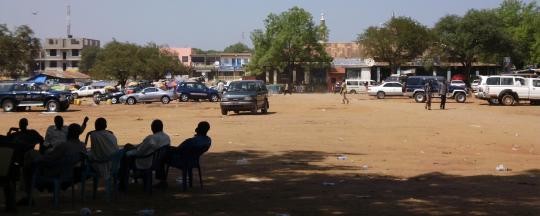The South Sudanese National Assembly is currently considering new regulation of national and international NGOs active in the country. The Non-Governmental Organizations Bill, 2013, now at third reading, would replace the New Sudan-era Non-Governmental Organizations Act, 2003.
There are significant ambiguities in the bill. Does the law, for example, intend to regulate the churches or church-led organizations? Or could it be used to do so, even if not by initial intent? What about trade unions or employee associations? And cultural and sporting groups?
Article 4 of the proposed law states that the regulatory body formed by the legislation would “be responsible for Non-Governmental, Civil Society, Humanitarian, and faith based organizations in the Republic of South Sudan and other related matters.”
Article 23 of the Transitional Constitution, 2012, guarantees religious freedoms, including an unrestricted right “to establish and maintain appropriate faith-based, charitable or humanitarian institutions.” Article 25 establishes broad protections of freedom of assembly and association, “including the right to form or join…trade or professional unions,” although it also provides that their “formation and registration…shall be regulated by law as is necessary in a democratic society.”
Other sections of the bill are problematic on practical grounds. The South Sudanization of the NGO sector is a laudable goal, and NGOs shouldn’t employ foreigners when and where nationals exist to do the job, but how exactly does the government intend to ensure, as per section 32 (c), that the “total number of South Sudanese working with the organization shall not be less than 80 percent of the total staff of the organization.” Would this be measured constantly? Monthly? Annually? If the proportion of foreigners within an NGO temporarily changes due to South Sudanese staff leaving employment, does that NGO run the risk of penalty or even the suspension of its activities?
While Sudan’s Humanitarian Aid Commission (HAC) is largely a front for the security services, South Sudan makes the link with the security sector explicit. The proposed regulatory board, already dominated by government appointees, includes two members from the security sector: representatives from Internal Security and the Ministry of the Interior (section 9).
Another example where Khartoum’s law is less onerous can be found in Section 28, which deals with the offence of an organization working without registration. The Voluntary and Humanitarian Work Organization (VHWO) Act only permits a fine and the confiscation of funds in the event an organization fails to register. Juba’s law carries heavier penalties, threatening the possibility of a fine, six months imprisonment, or both. The does however allow prosecution for other unspecified contraventions of the law, which South Sudan’s bill does not.
There are other clauses one could compare. I am not suggesting that Khartoum’s law would be a better model; given the extrajudicial nature of the Sudanese state, legal limitations are hardly relevant, anyway, and repression of non-governmental actors has not been inhibited by statute. But Juba can do better. If the bill is so bad that Khartoum’s text can appear superior, the legislators should be ashamed of their efforts. In Juba, there should be no need to remind anyone of the oppression of the old Sudanese state.
This article by Aly Verjee first appeared on Thoughts on the Sudans (full version available) and is re-printed by permission.
File photo: Juba market




